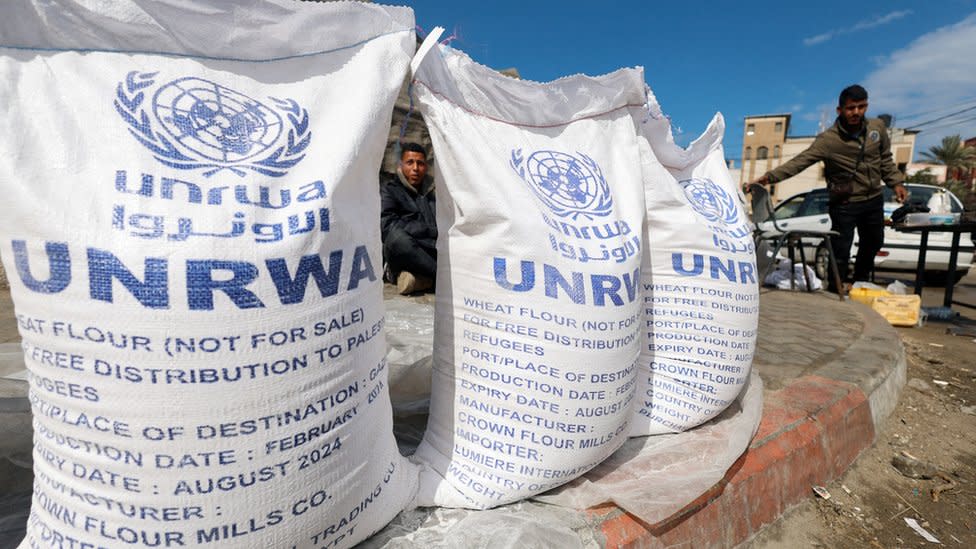Palestinian UN agency must improve neutrality - report

A UN report into the Palestinian refugee agency UNRWA has concluded it must do more to improve its neutrality, staff vetting and transparency.
But the independent review also said that Israel had failed to back up a claim that many of the agency's staff belonged to terror groups.
Some of UNRWA's staff were accused by Israel of involvement in the 7 October attacks and of being Hamas members.
This led several countries to halt funding to the humanitarian agency.
The new report says Israel has not yet provided "supporting evidence" for its allegations.
However it adds that the agency's monitoring processes need to improve, and that neutrality-related issues persist despite the fact that the organisation has a "robust framework".
The Israeli authorities have rejected the findings, claiming the report ignores the severity of the problem. They say the problem with the agency is not "that of a few bad apples: it is a rotten and poisonous tree whose roots are Hamas".
Israel initially alleged that 12 UNRWA staff took part in the Hamas attacks on southern Israel, which saw 1,200 people killed and about 250 taken hostage.
UNRWA fired the 10 of those employees who were still alive and a separate investigation by the UN's Office of Internal Oversight into those allegations is ongoing.
Monday's report looks at the other Israeli claim that large numbers of UNRWA staff are members of terror groups or have family members who are.
Israel has said more than 2,135 employees of the agency - of a total of 13,000 in Gaza - are members of Hamas or Palestinian Islamic Jihad, proscribed as terrorist organisations by Israel, the UK, US and others. It has also suggested a fifth of UNRWA school administrators are Hamas members.
UNRWA insists it carries out detailed reference checks on all staff, and shares staff lists with all host states including Israel. This new report says Israel is yet to provide supporting evidence for its claims.
But it is not a glowing endorsement of the agency.
Led by former French Foreign Minister Catherine Colonna, and supported by three European research institutes, it finds that UNRWA could do better upholding the obligatory humanitarian principles of neutrality and impartiality.
It points to staff vetting systems that could be improved - but adds that for this to happen, there needs to be better cooperation with and from Israeli and Palestinian authorities. Israel already receives lists of UNRWA staff for its own vetting purposes on a regular basis.
The report also highlights how challenging - even dangerous - UNRWA's working environment is.
Violence is common, opinions are polarised, and although UNRWA's systems are described as more rigorous than many other agencies, the report suggests they are often hampered by low staffing and security concerns.
The UN chief and head of UNRWA have accepted the report's findings in full, and pledged to implement all its recommendations.
Although several donors including Japan, Sweden, Finland, Canada and the EU have resumed funding to UNRWA, the US and UK have not.
The UN will be hoping this report will encourage them to restore their financial support.
But some donors may want to wait for the other UN investigation that specifically looks at allegations that 12 UNRWA staff actually took part in the 7 October attack, before restoring cash to an organisation today's report described, despite its need for improvement, as "irreplaceable and indispensable to Palestinians' human and economic development".

